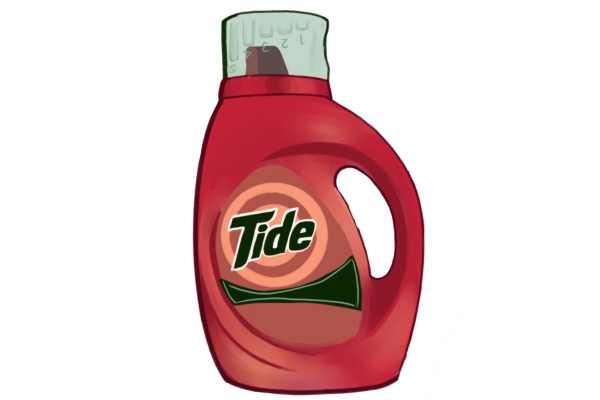TKC Review: “Merry Wives of Windsor”
Attending a play, let alone a KH Players production, was a new experience for me. The last show I had been to before Shakespeare’s “The Merry Wives of Windsor” was a mandatory attendance Nipher Middle School production of Aladdin; sorry to anyone reading who was a part of said show, but it was not enjoyable. So memorably bad, in fact, it took me seven semesters to get around to attending another school production. I had unapologetically average expectations for the KH Players production based off my lingering middle school memory. I will openly admit, however, that after watching “The Merry Wives of Windsor,” I wish I would not have been such a stubborn, close-minded jock. The stage design was simple yet purposeful, the technical aspects went without incident and the acting was simply moving. My only gripe was my own inability to decode Shakespearean dialogue. I found myself leaning on the program summary more than I would’ve liked.
To simplify the plot (a noble task), it can be split into two storylines, one of which took me much longer than the other to piece together. The main plot revolves around Sir John Falstaff (Aidan Beasley, senior). Falstaff is a slick-bearded womanizer, who under incomprehensible circumstances, sends two identical love letters to two different women: Mistress Ford (Madison Charleville, senior) and Mistress Page (Olivia Squires, senior). Hijinks ensue as Falstaff attempts to have an affair with Mistress Ford while her husband is away. Master Ford (Noah Rowan, senior) disguises himself as “Master Brooke,” a shy man with an affection for Mistress Ford. Ford pays Falstaff to woo Mistress Ford on his behalf. Ford knows when Falstaff will be in his home after meeting with him, and the stage is set perfectly for Ford to come in and catch the two in the act. Yet, Falstaff slips into a linen basket and sneaks out when Ford arrives, at the amusement of both Mistress Ford and Mistress Page. Rowan brilliantly portrays the misery of Ford’s failure to catch Falstaff, in tomato-faced fits of frustration. Ford’s plight gave Rowan the opportunity to show off his tremendous acting skills more than any other character; no other character had such an emotional struggle. Later, to make fun of Falstaff for his attempted adultery, the wives invite him to the park where some of the neighborhood kids dress up as elves… and fairies… Falstaff arriving as a deer. The scene changes from the familiar neighborhood to the middle of the forest (backdropped with a brilliant Kirby Whispy Woods esque tree), where Falstaff is teased and pinched to embarrass him out of his ways. The punishment did not seem fit- a slap on the wrist as if smooth-talking men meddling with the housewives of Windsor is nothing new.
The subplot happening throughout the first half of the play focusing on who will marry Anne Page (Lucy Schene, freshman) also wraps up in the forest, where seemingly the whole town has gathered to make fun of Falstaff. Mistress Page desired for her daughter to marry the well-off French Doctor Caius (Xander Piskulic, sophomore). Caius is a greasy Frenchman with a

Xander Piskulic, sophomore, frightens Zoe Knight, sophomore, and Hannah Moorhead, senior.
knack for fencing. Caius challenges Parson Evans (Jared Goudsmit, senior), who agrees to fight on behalf of Slender (Mark Perry, junior), to a duel over Page. Slender’s meek appearance and less-than-menacing character are backed up by an even more laughable skin-and-bones Parson Evans, who shows off his “muscles” in his gym class fencing attire. The location of the duel is not the same in both parties’ minds, and in the end, Caius and Evans come to their differences. After Falstaff is teased out of trying to mess with the town’s honest housewives, Anne Page announces her wedding plans with her secret suitor, Fenton. Good for Anne Page for sticking up for herself and taking her own road. Neither fencer Caius nor easily-bullied Slender seemed to be worthy suitors for Page.
When in the backdrop of 1950s diners and bobbing hair, Shakespeare’s plot and characters press a theme of female independence. Primarily, we see Page’s independence in the face of her mother’s arranged marriage plans with Doctor Caius. Mistress Page wants her daughter to marry a well-off doctor, as so Anne’s future would be secured as a housewife of a wealthy family; an especially surprising event to occur when the play was first written in the late 16th century- according to Encyclopedia Britannica. Mistress Page and Ford’s sly trickery of Falstaff, their husbands and their friends is also a dynamic shift in their normal roles. The two women are housewives, who, between the hours of 10-11, enjoyed having a laugh at the expense of the men.
Your donation will support the student journalists of Kirkwood High School. Your contribution will allow us to purchase equipment and cover our annual website hosting costs.

Interests: Austin Cleveland
Favorite quote: “If I had a gun with two bullets and I was in a room with Hitler, Bin Laden, and Toby, I would shoot Toby...











